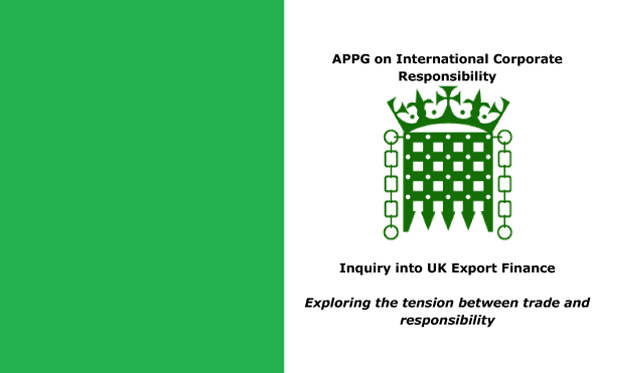A cross-party group of MPs has released a report into UK Export Finance – or what we call the Department for Dodgy Deals.
The report, covered on the front page of today’s Metro, recommends a radical shake-up of the department and endorses many of our campaign demands, including:
- An audit of the debts owed to UK Export Finance – that’s to say the vast majority of developing country debt owed to the UK
- Making human rights and environmental standards apply to all projects. At the moment, all projects of less than £10 million do not have any standards attached to them
- Hold to account companies that breach these standards
- Establishment of a grievance mechanism so those affected by UK-supported projects can receive justice
- A debate on prohibiting support for arms altogether
 What this means for our Dodgy Deals campaign is that we are really getting somewhere. We must push the government to endorse the inquiry’s recommendations, in particular to move towards a full audit of the debts.
What this means for our Dodgy Deals campaign is that we are really getting somewhere. We must push the government to endorse the inquiry’s recommendations, in particular to move towards a full audit of the debts.
The inquiry follows hot on the heals of another campaign success – when the government released information on what sort of debts were still owed to the UK. This confirmed some of our worst fears, finding that three-quarter’s of Indonesia’s £400 million debt comes from loans for military equipment. This includes exports of aircraft and tanks later used against the Indonesian people. The Indonesian people currently pay £50 million a year on this debt. The information also finds:
- 38% of Argentina’s debt comes from loans for military equipment. Our research reveals that in the late-1970s, the UK government lent the brutal Argentinian dictatorship money to buy two warships, helicopters and missiles, which were later used to invade the Falkland Islands.
- 56% of Ecuador’s debt comes from loans for military equipment.
- 23% of Egypt’s debt comes from loans for military equipment. Our research reveals loans for military equipment to dictators Sadat and Mubarak in the 1970s and 1980s.
- 74% of Indonesia’s debt comes from loans for military equipment. This includes aircraft and tanks used by General Suharto against Indonesian people in 1998 then Foreign Secretary Robin Cook admitted weapons supplied by Britain were used against civilians.
- 11% of Zimbabwe’s debt comes from Land Rover vehicles, which were later used in internal repression
- Only 1% of Iraq’s debt is said to come from military equipment. However, the Scott Report and investigations by journalists have previously revealed that some exports were classified as exports such as construction, which were actually used for activities such as building a chemical weapons factory.
- Almost 70% of Kenya’s debt comes from loans for ‘power sector projects’. These are thought to be loans for British companies to work on the Turkwel Dam in the 1980s. At the time, the European Commission noted the Kenyan government was paying double the competitive price, because of “high personal advantages” for politicians.
These figures prove that it would be possible to conduct an audit of British debts, despite what the British Government has previously claimed. In February 2011 when asked about the debt owed by Egypt, then Business Minister Ed Davey told parliament: “Details of the goods or services supplied under the individual contracts are no longer held nor the specific amount of outstanding debt under each contract.”
But this is not true.
In August the Norwegian government announced it is auditing all the debt owed to it. The Liberal Democrats have a policy to “conduct our own audit of all existing UK government and commercial debts, ruling invalid any past lending that was recklessly given to dictators known not to be committed to spend the loans on development”.
It’s time for a full audit of the UK debt’s – to wipe out several decades of unjust lending and to ensure it never happens again.
